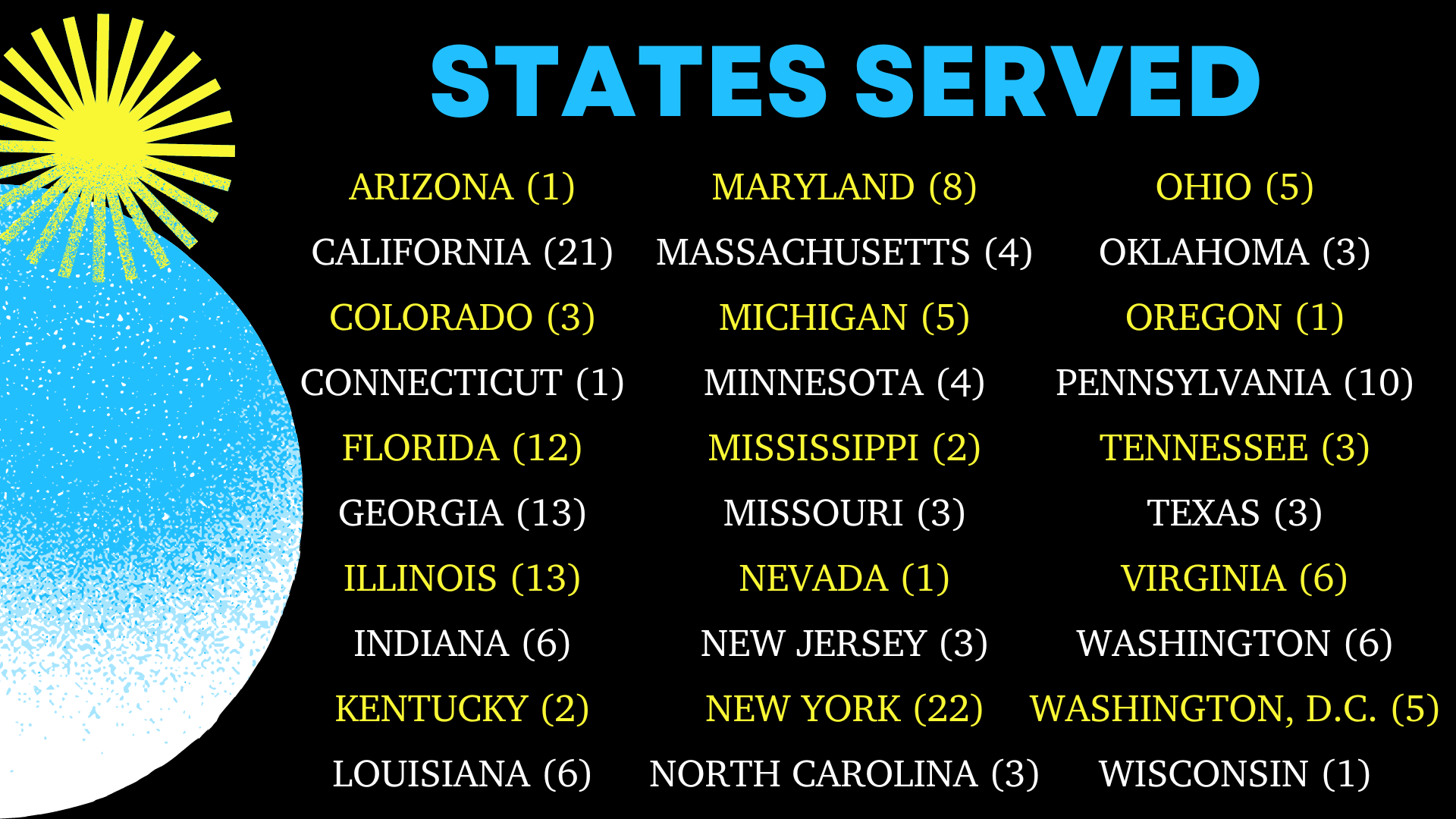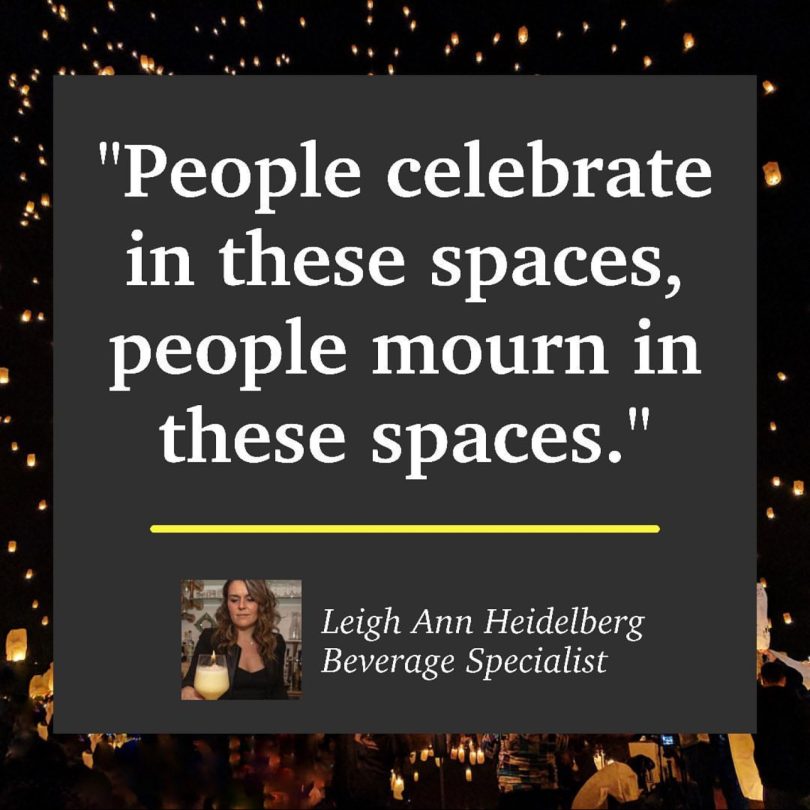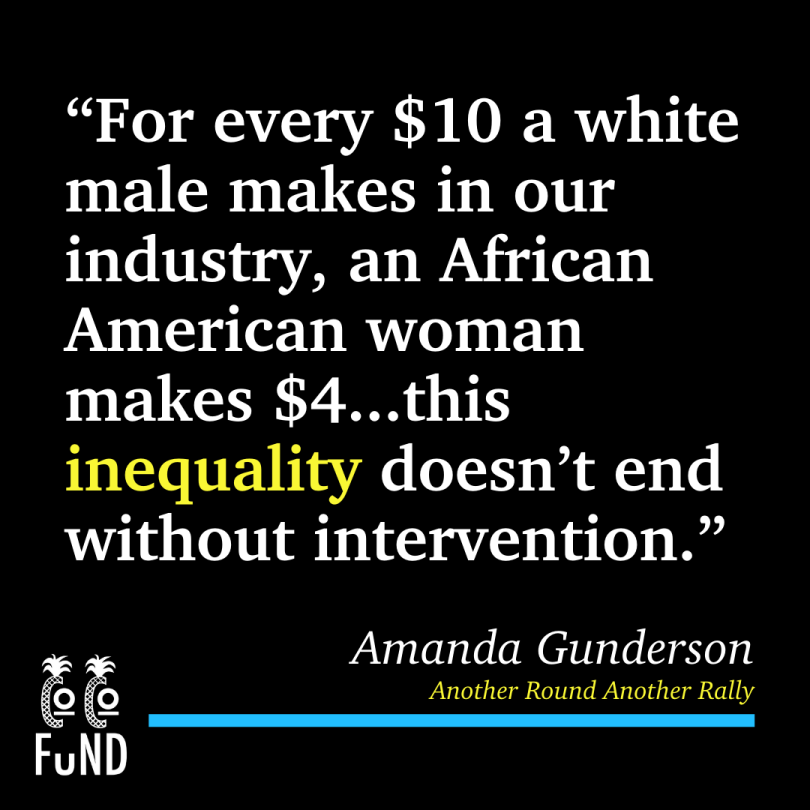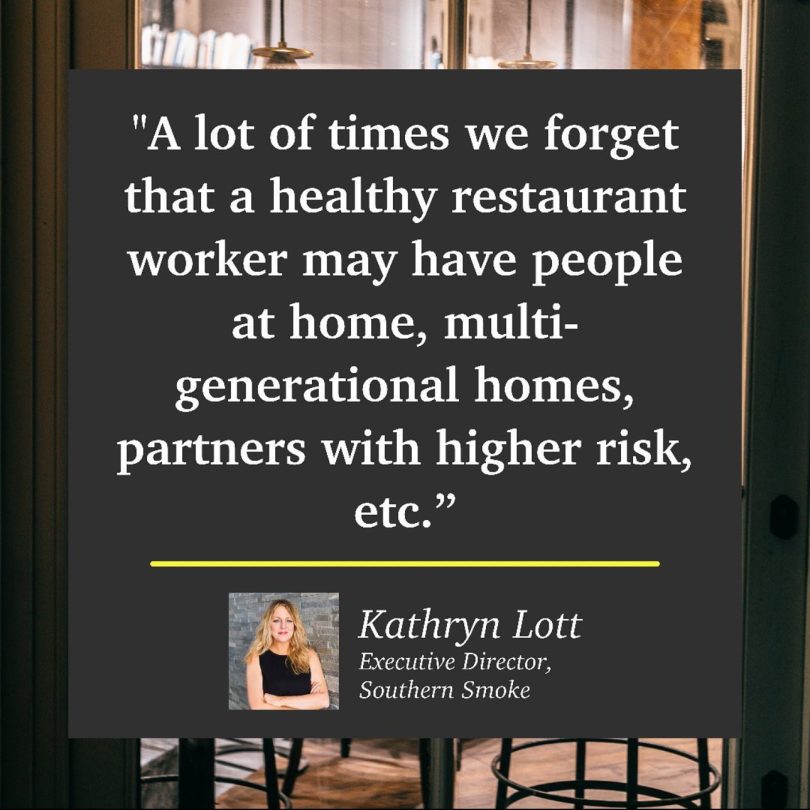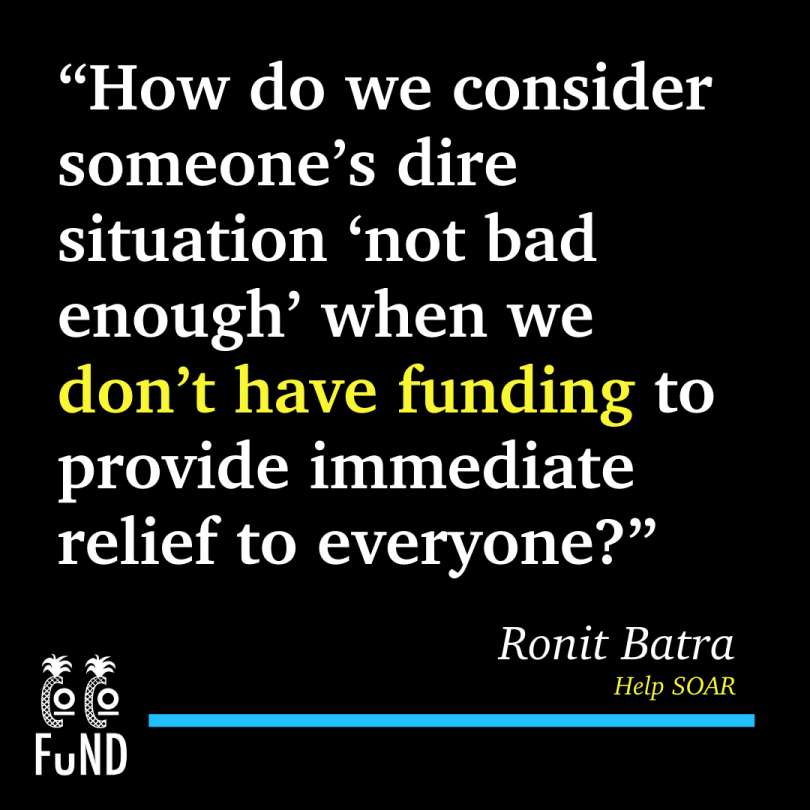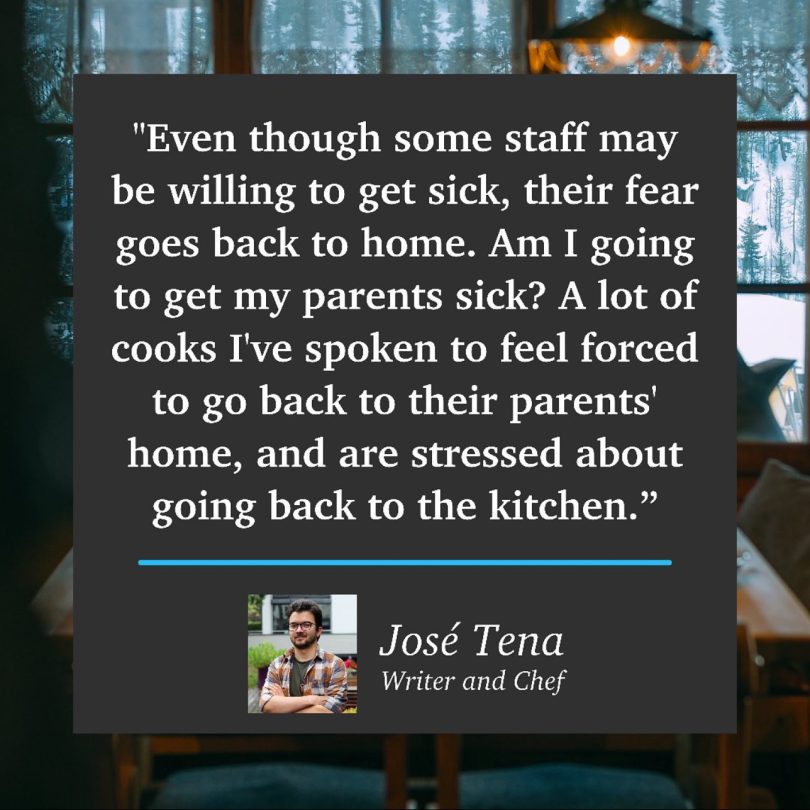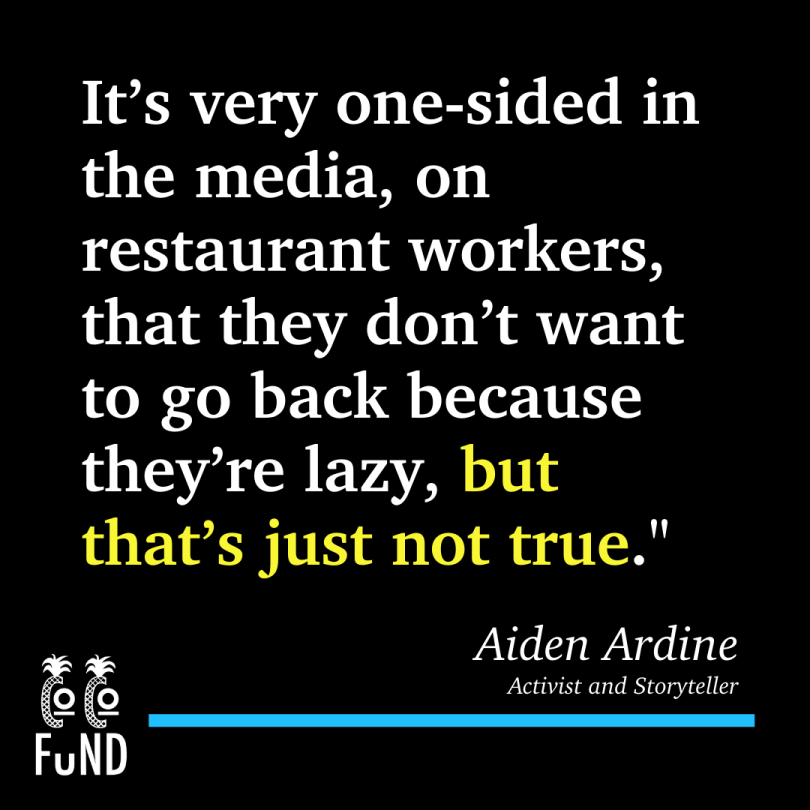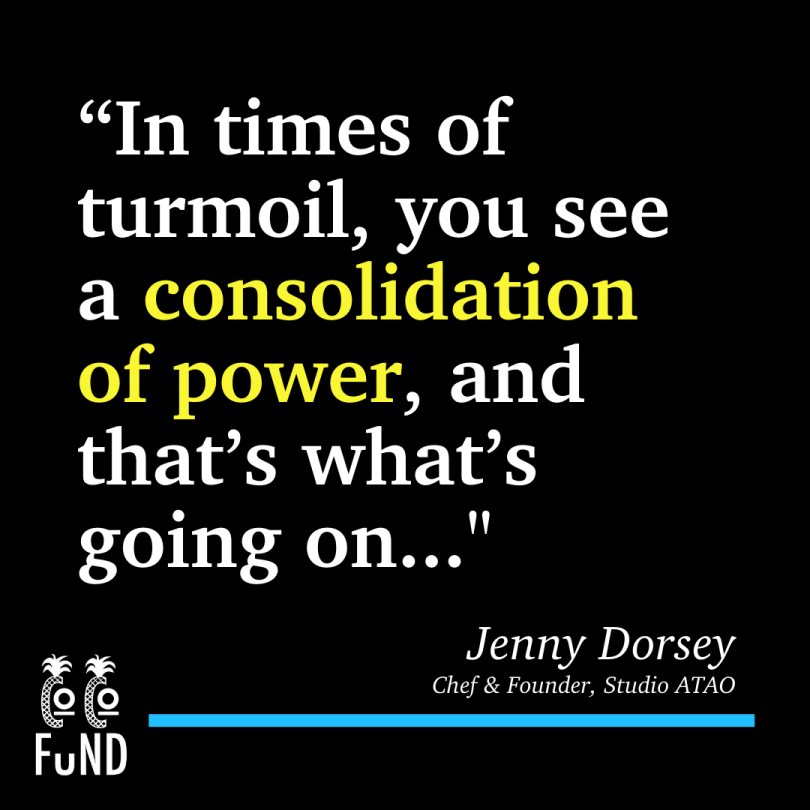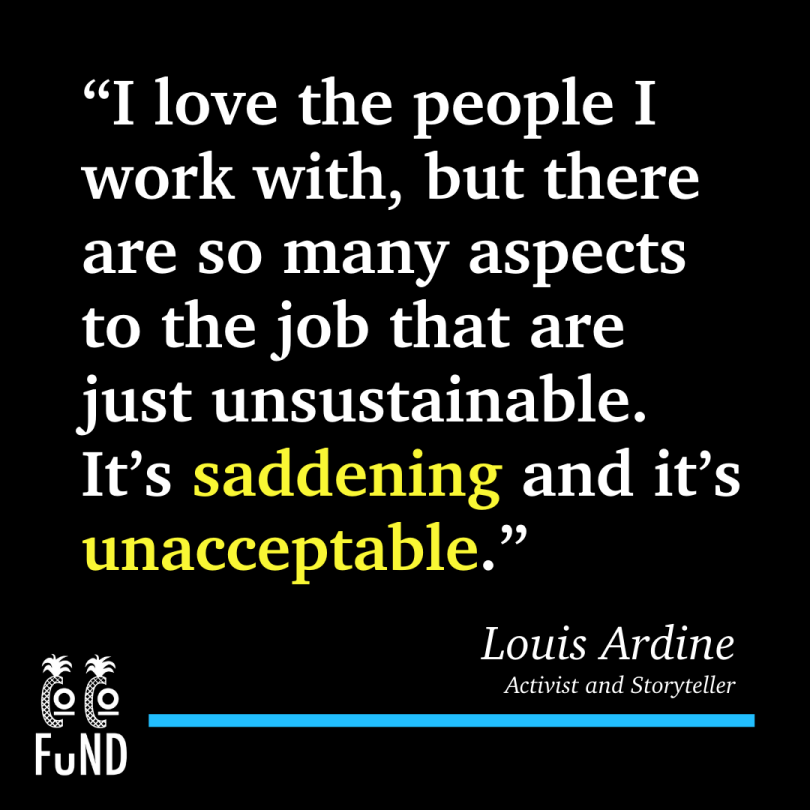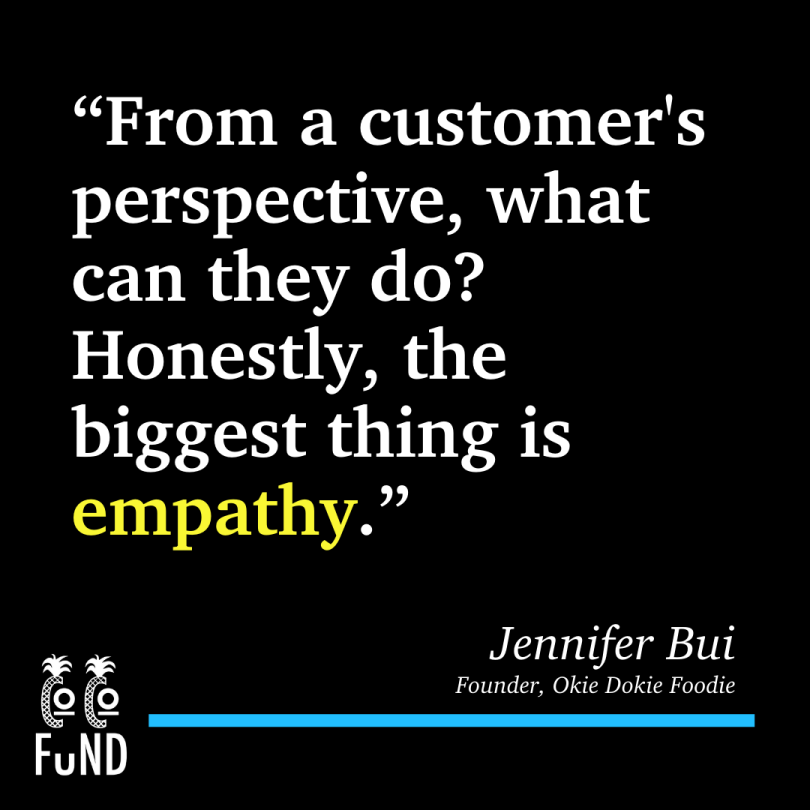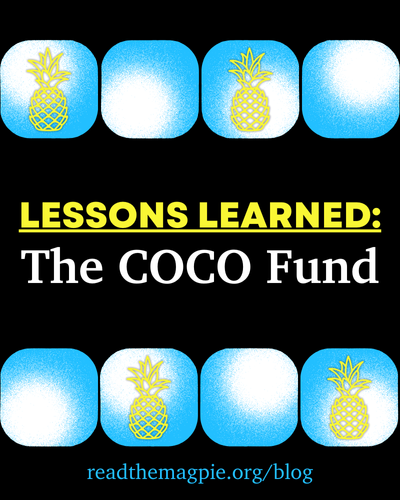
Lessons Learned from the COCO Fund
This post provides a case study of running an emergency charity project that we hope will be helpful to future organizers!
One of March On Foundation’s proudest achievements is what we did with the COCO Fund. Over a few weeks in March 2020, it grew from a fledgling project run by loosely connected strangers into a well-oiled, grant-giving machine.
The COCO Fund operated between March 2020 and May 2022. It was the brainchild of Michael Brotherton, who worked as a restauranteur in New York at the start of the COVID-19 pandemic.
COCO distributed grants through every phase of the pandemic: the immediate panic of the first shutdowns, the long haul of isolation that lasted well into 2021, then the starts and stops of business as we slowly wound back down to “normal”.
COCO ‘s activities slowed down dramatically in 2022 due to lack of funding. After several years of constant giving to programs that supported food workers and equity, the focus that large foundations gave to these organizations immediately shifted away. It is a problem that continues to plague food-centered nonprofits and projects in 2024.
At the end of May 2024, we officially “sunsetted” (closed) our COVID relief fund through a questionnaire featuring reflections from previous COCO Fund team members. We’re so proud of the work we did through COCO, and we want future organizers to be able to learn from our mistakes and successes.
We saved a few of the answers from the team questionnaire to provide this follow-up post on the lessons we learned from the COCO Fund. You’ll also read insights from panels organized by the COCO Fund, a brief reflection on the COCO Fund’s collaborations with other organizations, and notes and statistics from our grantees. We hope you find it useful in creating your own projects!
Insights from our grantees
COCO Grantee Breakdown
Notes from our grantees
- Henry from Rego Park, NY: “…There are no words that I can say to convey the appreciation that I feel for all of you during this time of loss in our life. I am so humbled… for the concern and care that you all have shown to me and my family. The financial help is more appreciated than you’ll ever know. Once again, thank you so much.”
- Austin from Portland, OR: “My entire career in the food industry I’ve always thought, ‘We’ve had it made! It could be the end of the world, and people still want to eat!’ Flashback to last March , to the first time I’ve been laid off in my life… I had a boy on the way and there was no way I could support my new family. I don’t think I’ve ever been more terrified at the unknown before… I’ve been a month behind consistently on just about everything, depressed that I’m not in my kitchen and just really truly in the dumps. I then heard from you guys and it seemed like something clicked! A few days after receiving my grant, I was offered a job and was back to work! Thank you all at the CoCo fund, you really manifested something beautiful for this chef and his little family!”
- Dana from Caseyville, IL: “Thank you SO much to the COCO Fund. This grant will help provide my family with much needed groceries, household supplies, electric & WiFi for 2 remote learners during the month of November. ♥️ Hard-hit hospitality worker & family. Have a great day!”
- Robert from Philadelphia, PA: “I don’t know how to express or tell you that you brought a grown man to tears lol but once again thank you… Thank you so much.”
- Sage from St. Petersburg, FL: “Thank you so very much. I’m more grateful than words can describe for this help. I lost my job so suddenly and at a time when I was already feeling so vulnerable. I have survived cancer twice and have other health concerns so when covid began I was doing all I could to stay healthy and safe. I tried to keep my coworkers safe by making masks and bringing in sanitizer. All I thought about during the long overnight shifts was if I got sick and left my daughter behind or god forbid if I got her sick and lost her… Thank you again for caring for us in the industry and for helping my family stay afloat.”
- Shamere from Stone Mountain, GA: “I am enthralled with tears because throughout this whole pandemic and the times of a hardness I’ve been going through from being homeless too hungry to sleeping in abandoned cars and I and blessed and thankful to be chosen to receive this grant I know it will help me and my two kids tremendously… thank you thank you so much.”
- Holly from Eden Prairie, MN: “Thank you so much for your help.”
- Jesus from Los Angeles, CA: “…Demos las Gracias, Gracias The Coco Fund por estas subvenciones de ayuda que vino a calmar la sed de muchos hogares de California!!! Gracias y que Dios Bendiga a esta Fundación a The Coco Fund!!!! Jamás debemos de perder la fe y mucho menos la esperanza de que pronto vamos a salir de esta terrible enfermedad, esta peste del Covid-19 que ha dejado con tanto dolor a familias enteras, ha quitado vidas y nos ha cambiado por completo el modo de vivir, el modo de trabajar y la forma de transitar de esta aventura que se llama vida.”
Insights from our panels
The COCO Fund hosted two panel discussions to provide insight into the state of the restaurant and hospitality industry during the pandemic. The insights that our panelists provided are invaluable not just for historical reflection, but for future planning.
Panel #1: “Restaurants, COVID-19, & the Future”
Our first panel hosted founders and directors from food justice organizations and projects across the United States to discuss the state of the industry. It was held on May 13, 2021 to celebrate the first anniversary of the COCO Fund giving its first grant. It had 19 live attendees; and in the week after the panel, the Facebook video of the panel exceeded 5,000 views.
Panelists (with their bios at the time):
- Moderated by Erika Adams – Eater New York
- Ronit Batra – Founder and President of Help SOAR, a nonprofit organization dedicated to helping restaurant workers impacted by the effects of COVID-19
- Michael Brotherton, Co-Founder of The COCO Fund, (Covid Community Fund) provides critical financial support to restaurant and hospitality workers; some of those hardest hit by COVID-19
- Amanda Gunderson, CEO and Co-Founder of Another Round Another Rally a nonprofit providing professional development grants and tuition reimbursements to underrepresented voices in the restaurant community
- Kathryn Lott – Executive Director of Southern Smoke Foundation, a crisis relief organization for workers in the food and beverage industry; providing funds directly to people in need battling challenges from health crises to natural disasters, and of course the pandemic
- José Tena – International Correspondent of Humans of the Kitchen, a group of storytelling photojournalists elevating the untold stories of the men and women that make up the backbone of the restaurant industry
Key Takeaways:
- Restaurant and hospitality workers across the country put their lives on the line during the pandemic to keep the economy going. They need and deserve adequate mental health resources to cope with the trauma the pandemic inflicted.
- Short-term solutions for May 2021 included:
- Socially-distanced tables.
- Displaying vaccination cards to ensure safety.
- Continued morale-boosting through grant programs like the COCO Fund.
- Long -term solutions included reforming the tipping system and providing worker health insurance.
- For future panels, long-term planning is necessary to find sponsors and partners.
- Boosting video of the panel discussion is a good way to increase views if the initial event has lower turnout.
Full video:
Memorable Quotes:
~~~~~~~~~~~~~~~~~~~~~~~~~~~~~~~~~~~~~~~~~~~~~~~~~~~~~~~~~~~~~~~~~~~~~~~~~~~~~~~~
Panel #2: “Change in the Time of Delta”
Our second panel, “Change in the Time of Delta”, was held on October 28, 2021. The pandemic had been keeping everyone on their toes: infection rates fluctuated constantly, and shutdowns were being lifted and reinstated repetitively. This period in 2021 and 2022 is characterized by a huge number of people leaving the workforce, as a result of the COVID shutdowns. It’s defined as the Great Resignation by Professor Anthony Klotz from Texas A&M University.
Panelists (with their bios at the time):
- Moderated by Erika Adams – Eater New York
- Aiden and Louis Ardine of Unmuted Stories, who recently completed their walk across America to raise awareness and fundraise for restaurant workers across the country
- Jennifer Bui of Okie Dokie Foodie, who donates her photography services to help small restaurant owners in hope of bringing them more business and spotlight on their food and establishment
- Chef Jenny Dorsey. Professional chef, writer, activist who uses food as a medium for identity, vulnerability, and social change. She’s also the founder of Studio ATAO, a 501(c)3 nonprofit community think tank that creates tools and resources empowering individuals, organizations, and policymakers to integrate social impact into their everyday life and work.
Key Takeaways:
- In a survey conducted by the COCO Fund in partnership with panelist Jennifer Bui, 32% of respondents reported that they didn’t return to work because they weren’t paid enough.
- Based on their walk across America, the Ardines noted that restaurants in rural communities – where business is slower – struggled with staffing and were earning just enough to pay for their utility bills. Meanwhile, corporations like Walmart and McDonald’s, who increased their minimum wages to $15 after the pandemic, leave smaller businesses without workers and consumers. Despite the increase of wages, they still aren’t offering workers benefits that are needed in case emergencies like the pandemic occur.
- The problems within the restaurant and hospitality industry were not caused by the pandemic – they were chronic issues that were further exacerbated by the pandemic.
Full video:
Memorable Quotes:
Insights from our collaborations
One of the most crucial drivers of COCO’s success was the team’s constant determination to connect and work with other industry professionals.
Some of our collaborations were passive. One example is TrueCooks, one of the earliest fundraisers for the COCO Fund. They raised money for COCO by contributing a percentage of the sales of some of their merchandise. This ultimately raised several thousand dollars for us and allowed COCO to hit the ground running.
Other collaborations were less successful, though not through the fault of our collaborators! In early 2021, COCO organized a raffle-style fundraiser that featured prizes donated by our colleagues. These included a sign from Fireball Whiskey (like, actually from Fireball Whiskey); wine tasting courses from a sommelier; and artwork from several different professional artists. Unfortunately, we only had a few people enter the raffle, and even when people won they either didn’t receive or didn’t answer our emails. Sometimes, it just isn’t meant to be.
Our biggest collaboration was with Aiden & Louis Ardine, brothers from New Jersey who walked across the country to raise money and awareness of the problems facing the restaurant industry during COVID. Aiden & Louis blew us all away when they facilitated a partnership with Verizon and the Mobile Giving Foundation, which helped us raise hundreds of dollars (and, frankly, made us feel like we made it to the bigtime!).
Moreover, they continually promoted our work and amplified our calls for action. Towards the end of their project, they held a final fundraiser for the COCO Fund that raised about $2,000. Having their ongoing collaboration, as well as the collaboration of other organizations, companies, and individuals, furthered our mission and boosted our morale: we knew that people had our back, even if not everyone did.
Insights from the COCO Fund team:
Nothing is more helpful than a firsthand experience, and we have a lot of it! As a part of our previous questionnaire to previous COCO Fund team members, we asked questions about what COCO could have done to create a bigger impact..
Six respondents gave their feedback, both about the COCO Fund’s work and its place in the COVID climate of that time:
What was the most difficult aspect of working with the COCO Fund?
Eve Hurwitz, Cofounder
Getting funds in to give out the grants. We constantly had a waiting list.
Carly Rhodes, Application & Grant Reviewer
Making decisions on who was most in need for grants. It felt like everyone needed help and choosing who needed it most was difficult.
Jessica Capone, Application & Grant Reviewer
Reviewing grants for individuals going through difficult times can be emotionally challenging, as it often involves delving into personal stories that depict the struggles of those in need. Verifying their circumstances and researching their backgrounds can reveal heartbreaking tales of individuals living below acceptable standards and grappling with poverty.
Each story reminded me of the harsh realities faced by many in our communities.
Brenda Panama, MOF Research Intern
I think the most difficult aspect of working with the COCO Fund was not being able to help everyone that would ask for grants or additional resources. In a perfect world everyone would be able to receive the aid they need but unfortunately this is not the world we live in.
Anonymous, Development Advisor
I think that the urgency / immediacy of need was so strong and the COCO Fund team was working as hard as they could to meet this need. It’s always difficult to see people struggle and know that there’s a limit on how much you can do, how much you can raise to support them, and what emergency funds can cover.
Emma Buchman, Grants & Social Media Manager
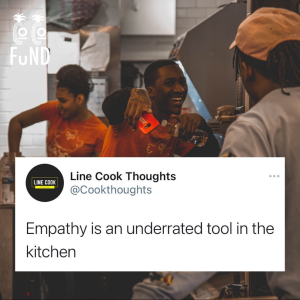
Deciding where to send money and dealing with the stress of applicants going too far. We wanted to help everyone we could, and created an internal rubric to best decide where the money would go. We prioritized people with families, medical issues, lack of access to insurance, immigration status, and other crucial factors.
We all truly felt for all of our applicants, but we couldn’t afford to help everyone who needed it. The need was so overwhelming, our normal acceptance rate for grants was about 10%. As such, there were many people we had to let down. Having to say, “No” so often was difficult enough, especially knowing how much privilege I had – but sometimes, this would be compounded when two or three applicants became so upset that they spread misinformation about us to our peers or who wouldn’t take our answer as… well, an answer.
What was the most meaningful part of working with the COCO Fund?
Eve Hurwitz, Cofounder
The notes we received about how we had helped people and families.
Carly Rhodes, Application & Grant Reviewer
Being able to help people who really needed it.
Jessica Capone, Application & Grant Reviewer
Reviewing grants offered me a profound opportunity to make a meaningful difference (even if small) in the lives of those who are most vulnerable. It served as a reminder of the importance of compassion, solidarity, and collective action.
Brenda Panama, MOF Research Intern
The most meaningful part was spreading awareness about the hospitality industry’s workers hardships. I feel that the COCO Fund did a great job in helping and showing the difficult times these workers were going through as a result of the pandemic.
Anonymous, Development Advisor
Everything – seeing people come together to do everything they could to support restaurant workers was a bright light in a really difficult time. Knowing the difference every dollar made was powerful, and hearing the stories from the people who applied was heartwarming.
Emma Buchman, Grants & Social Media Manager
Knowing that I was doing something tangible that could help people in an emergency. A lot of nonprofit work feels abstract or distant. Victories come years apart, if at all. So to have a fund that we rapidly built from the ground up specifically to help people in a scary time of our history, where we would have victories every week, sometimes every day, was a powerful and heartwarming feeling. My time in general with COCO was very meaningful to me.
What is one thing that the COCO Fund could have done differently to make a bigger impact?
Brenda Panama, MOF Research Intern
Honestly we did the best we could and I know that Emma and Esther poured their hearts into the COCO Fund. I’m super proud of everything they did with such limited resources. They were able to help so many!
Anonymous, Development Advisor
Honestly I’m not sure – I think the reality was that there were a lot of organizations trying to do similar work, and that early collaboration and coordination would have been impactful and reduced the burden on people applying to multiple funds. Saying that, I don’t know anyone who had that long vision early in the pandemic.
Emma Buchman, Grants & Social Media Manager
I have two, but I’ll keep it short: we needed more people and I needed to be more fearless. The problem of too few volunteers is evergreen, you’ll always have to deal with that in organizing. But this was my first time where I was responsible for coordinating the movement of large amounts of money that was going directly to impacted people. As such, there were times where I feel I was too tentative, but I think the confidence had to come with experience.
~~~~~~~~~~~~~~~~~~~~~~~~~~~~~~~~~~~~~~~~~~~~~~~~~~~~~~~~~~~~~~~~~~~~~~~~~~~~~~~~
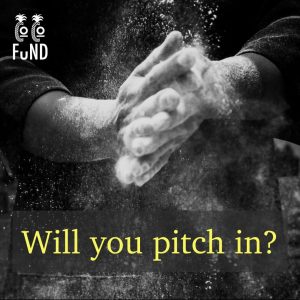
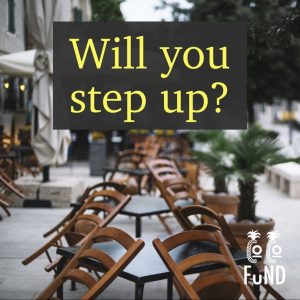
Two examples of social media graphics in our fundraising campaign on Instagram. We primarily used Instagram and Facebook for social media, but also maintained a LinkedIn and sent newsletters via MailChimp.
~~~~~~~~~~~~~~~~~~~~~~~~~~~~~~~~~~~~~~~~~~~~~~~~~~~~~~~~~~~~~~~~~~~~~~~~~~~~~~~~
Is there an applicant story that sticks out to you?
Eve Hurwitz, Cofounder
I remember someone was in danger of getting evicted, and the grant covered their rent. Their note was so sweet.
Jessica Capone, Application & Grant Reviewer
I have a few.
Emma Buchman, Grants & Social Media Manager
There are several: one was a young man who was transgender who had to reuse needles for their testosterone treatments because they couldn’t afford to buy new ones. That person ended up being the inception of our nanogrant program – where we would send $50 to applicants who had extremely urgent circumstances but who hadn’t been through the complete application process yet.
Overall, it wasn’t a specific person but rather the type of person who applied for grants that sticks with me. So many stories had unique elements that made the lives of those living them harder, but the amount of need was usually the same.
There were workers taking care of babies and small children, sometimes sick children; workers who were tending to elderly and infirmed relatives who were immuno-compromised; some workers were doing all of this while they were sick themselves. We had several applicants who had recently left domestic abuse situations.
And so, so, so, so many people were facing homelessness. Many expressed that if they didn’t receive a grant, they would be evicted. And many of those who already reported being homeless had also recently left abusive relationships.
That still sticks with me, because I know that we were unable to be the last line of defense for some people who really needed help. We couldn’t be the buffer to support them. That hurts, still.
–
If someone wanted to start something like the COCO Fund in the future, what advice would you give them? What strategies would you recommend?
Jessica Capone, Application & Grant Reviewer
Fundraising is very important and should be a priority.
Anonymous, Development Advisor
Collaboration – scouting to see what other organizations are doing this work, where the gaps are, and where you could work together. I’d also suggest when working with companies to really pitch a long term strategy.
We moved so quickly and with such urgency that it was hard to plan for the future. If we’re in a space where another COCO Fund is needed, I’d hope they have that time to plan and collaborate, but understand that helping others comes first.
Emma Buchman, Grants & Social Media Manager
Find someone who can be your dedicated fundraising person at least part-time. Someone whose only responsibility it is to do outreach and raise money for your project. Everyone who worked on the COCO Fund was stretching themselves across different roles to make it work, particularly those at March On Foundation who were not volunteers. After a while, this became unsustainable. And without money, there’s no way we can fulfill COCO’s mission.
I also might start higher with the grant amount. We settled on $500 because it was easy and straightforward, but if I could do things differently I might have argued for a higher grant amount, either $750 or $1,000. But once you choose an amount, keep it consistent and don’t deviate unless you’re creating a separate grant altogether. That way everything stays as fair and objective as possible.
What elements of the COCO Fund do you think other organizers should adopt for future rapid-relief funds?
Eve Hurwitz, Cofounder
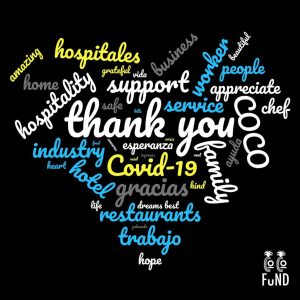
Using the same dollar amount for all of the grants, cute branding, a lot of word of mouth.
Jessica Capone, Application & Grant Reviewer
Partnerships with other organizations.
Brenda Panama, MOF Research Intern
The grants were a great way to temporarily help support people.
Anonymous, Development Advisor
Centering the stories of impacted communities and dedication to the work, even after the first wave of emergency ends.
Emma Buchman, Grants & Social Media Manager
Definitely our meeting structure: regular meetings once a week or more is crucial for smooth operations, transparency, and accountability.
I was very proud of our system for reviewing applications. While the group wasn’t huge, it was big enough to have a good diversity of opinions and perspectives. We were also extremely attentive to the development of our application: what kind of questions we would ask, how we would word them, what kind of information we would require, how we would keep people’s private information safe… We were very thorough.
Other elements would be a strong social media presence and creating resource lists so that the help isn’t just monetary.


